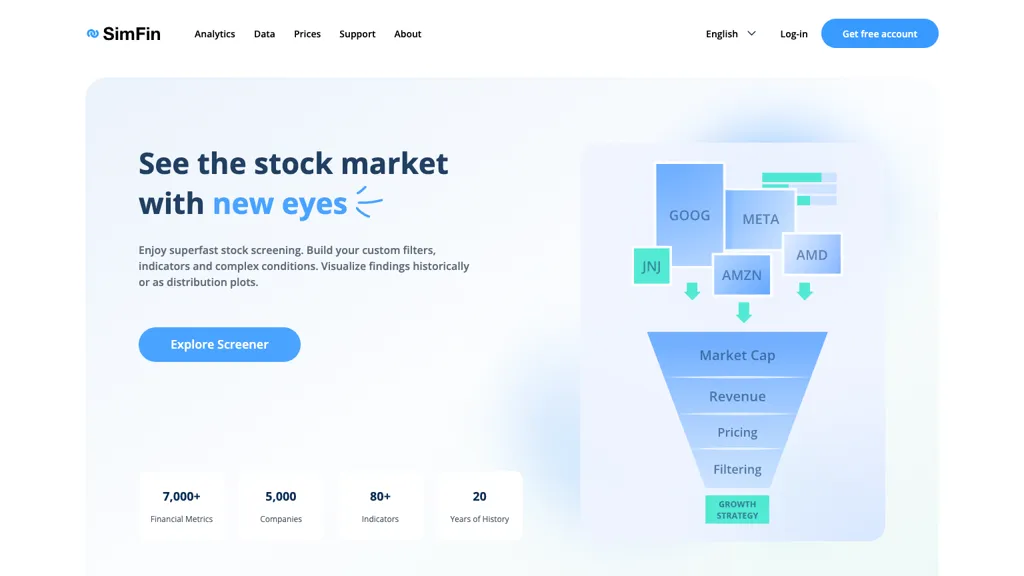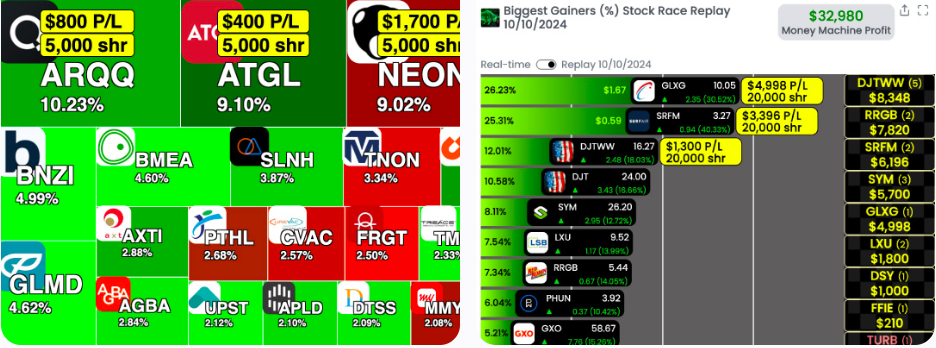20 Free Advice To Picking AI Stock Trading Platform Websites
20 Free Advice To Picking AI Stock Trading Platform Websites
Blog Article
Top 10 Tips To Assess The Integration Of Ai Platforms For Stock Prediction And Analysis And Their Compatibility
Integrity and compatibility are the most important aspects to take into consideration when looking at AI analysis and forecasting platforms for trading. A platform that seamlessly integrates with existing tools, systems and workflows of your business can boost productivity and efficiency. Here are the top ten tips to assess compatibility and integration.
1. Check Brokerage Integration
Supported brokers: Ensure the platform is compatible with the brokerage you prefer account or trading account.
Trade execution: Check if your platform allows you to make trades directly via the integrated broker.
Account synchronization - Check to determine if your system can synchronize accounts' balances, transactions and positions in real time.
2. Examine API for Availability
API access: Make sure that the platform has an API (Application Programming Interface) that allows developers to develop customized tools or automate workflows.
API documentation - Make sure that the API's example and usage scenarios are well documented.
Rate Limits: Verify the API's rates limits to make sure that they are appropriate and can accommodate your expected use.
3. Integrating Third-Party Tools
Popular tools See whether there is any connections between the platform and tools such as Google Sheets, Excel, or trading robots.
Import and export of data - Check that the platform allows for easy data export/import from/to other tools.
Extensions or plugins: Check that the platform allows for plugins or extensions. They can add additional functionality.
4. Test Compatibility with Operating Systems
Desktop compatibility: Make sure the software works with your preferred operating system (Windows, macOS, Linux).
Mobile compatibility: See whether the platform has a mobile app for iOS and Android.
Web-based: If you'd like to be flexible, make sure you check if your platform can also be accessed via the standard web browser.
5. Assessing the Data Integrity Capabilities
Data sources: Check whether the platform is compatible with multiple data sources (e.g. market data providers or news feeds).
Data feeds that are real-time: Check whether the platform allows real-time data integration for up-to-date analysis.
Find out if the platform is able to import historical data.
6. Check compatibility with cloud and on-premise
Cloud-based platform that is accessible any time, anywhere, as long as you have an internet connection.
On-premises solutions: Determine if you want to deploy the software on your own premises.
Make sure the platform is an option to mix both on premises and cloud capabilities.
7. Look for Cross Platform Syncronization
Device synchronization. Check that the platform is synchronized to transfer settings and data across the devices (desktops/laptops/mobiles/tablets).
Verify that changes made to one device immediately reflect on all devices.
Offline access - See whether you have access to data or limited functionality in the event that the platform isn't online.
8. Assess the Compatibility of Trading Strategies
Algorithmic or automated trading: Ensure that the trading platform supports these strategies.
Custom indicators: Find out if you can make use of custom indicators or scripts.
Backtesting strategy: Find out if your platform allows you to test trading strategies with historical data.
9. Review Security and Compliance
Data encryption: Ensure that the platform has encryption in place for data during transit and in rest.
Authentication Check to determine if your platform is compatible with an authenticated method that is secure (e.g. 2-factor authentication).
Regulative compliance: Make sure that the platform complies wth relevant regulations.
10. Test Scalability and Performance
Scalability - Make sure that the platform you select can handle your growing needs in terms of users and data.
Performance when under load: Determine whether your platform is able to adapt to market conditions with high volatility.
Utilization of resources: Check the extent to which your platform is using its system resources (CPU/memory and bandwidth) effectively.
Bonus Tips:
Users' feedback: Look for reviews and comments from users when evaluating the site.
Trial period: Use the trial period for free or demo to try the system's integration with your current workflows and tools.
Customer Support: Ensure that your platform has a robust assistance in connection problems.
You can test the integration, compatibility, and effectiveness of AI stock trading platforms by following these tips. Read the most popular ai for investment blog for blog info including trading with ai, best ai stock, ai for stock predictions, best ai stock, ai stock picker, market ai, ai trading tools, ai for investing, ai stocks, trading ai and more.
Top 10 Tips On Assessing The Regulatory Compliance Of Ai Stock-Predicting/Analyzing Trading Platforms
Regulatory compliance plays a crucial aspect in evaluating AI platforms for stock prediction and analysis. Compliance assures that a platform's operations are within the legal frameworks. Data of users is secured and the financial regulations are followed and reduces the risk of legal concerns. Here are 10 top tips on how to assess the level of compliance these platforms have.
1. Verify the Licensing & Registration
Authorities regulating the platform: Make sure that the license and registration is with the relevant financial regulators (e.g. SEC or FCA in the United States, ASIC or ASIC in Australia).
Check that the brokers integrated into the platform are licensed and licensed and.
Public records: Go to the official website of the regulator to verify the status of registration as well as previous violations.
2. Assessment of the data privacy Compliance
GDPR: If operating within or serving users from the EU make sure the platform complies with the General Data Protection Regulation (GDPR).
CCPA For those who reside in California ensure that they are in compliance with the California Consumer Privacy Act (CCPA).
Data handling policies: Go through the platform's policy on data privacy to make sure that it outlines exactly how data from users are stored, used and shared.
3. Assessing Anti-Money Laundering measures
AML Policies: The platform should have robust AML (Anti-Money Laundering) policies to identify money laundering and prevent it from happening.
KYC procedures Check to see if your platform follows Know Your Customer processes for confirming user identity.
Monitoring transactions: Find out if the platform monitors transactions for suspicious activities, and then reports it to authorities in charge.
4. Make sure you are in compliance with Trading Regulations
Market manipulation: Make sure that the platform has measures to avoid market manipulation like spoofing, wash trading.
Types of orders. Verify whether your platform is in compliance with the rules for order types.
Best execution : Make sure that the platform is using top execution techniques to execute trades at a competitive cost.
5. Cybersecurity compliance assessment
Data encryption. Make sure your platform has encryption for user data, both in transit and at the rest.
Response to incidents: Verify if the platform has a clearly defined incident response plan in case of cyberattacks or data breaches.
Certifications - Find out if your platform has any cybersecurity certifications.
6. Transparency and disclosure A Review
Disclosure of fees. Make sure that all fees and charges are disclosed clearly, including any additional or hidden costs.
Risk disclosure: Check if the platform has explicit risk disclosures. Especially for high-risk and leveraged trading strategies.
Performance reporting: Verify that the platform is honest and precise reports regarding the accuracy of its AI models.
7. Make sure you're in compliance with International Regulations
Transborder trade If you plan to trade internationally make sure the platform complies with all applicable laws.
Tax reporting - Verify the platform's tools and reports to help users to comply with tax laws.
Conformity with sanctions: Ensure that the platform follows sanctions and is not allowing dealings or transactions with banned entities or countries.
8. Examine Record-Keeping and Audit Trails,
Transaction records: Ensure that the platform keeps precise records for purposes of regulatory and audit purposes.
Logs of activity for users (logs) The logs contain information about user activity. check if the platform records the user's activities, including transactions and logins. Also, verify if the account settings have altered.
Audit-readiness: Determine whether the platform will be able to produce all required documents and logs to support the possibility of a regulatory audit.
9. Examine Compliance with AI-specific Regulations
Algorithmic trading regulations: If a platform is able to support algorithmic trading, ensure it's in compliance with regulations such as MiFID II in Europe or Reg SCI in the U.S.
Fairness and Bias: Examine to see if there are any biases that the platform is able to control and minimize in its AI model. This ensures fair and ethical trade.
Explainability: Some regulations require that AI platforms explain AI-driven predictions or choices.
Review User Feedback and Review History of Regulatory History
User reviews: Conduct user research to evaluate the reputation of the platform regarding regulatory compliance.
The history of regulatory compliance - see if the platform is known for any past penalties or violations of regulations.
Third-party audits: Determine that the platform has regular audits by third parties to ensure compliance with regulations.
Bonus Tips
Legal consultation: Talk to a legal expert about the platform's conformity to relevant rules.
Trial period: Make use of a free demo or trial period to evaluate the features of the platform that are compliant.
Customer support: Ensure the platform provides assistance for compliance-related questions or concerns.
With these guidelines you can identify the level of compliance with the law within AI stock trading platforms. This will allow you to choose a company that is operating within the legal framework that will protect your interests. Compliance reduces legal risk and increases confidence on the platform. See the most popular best ai trading platform advice for site advice including best ai stock prediction, ai stock predictions, ai stock prediction, ai stock prediction, best ai stock prediction, ai share trading, invest ai, best ai stock prediction, how to use ai for stock trading, ai investment tools and more.